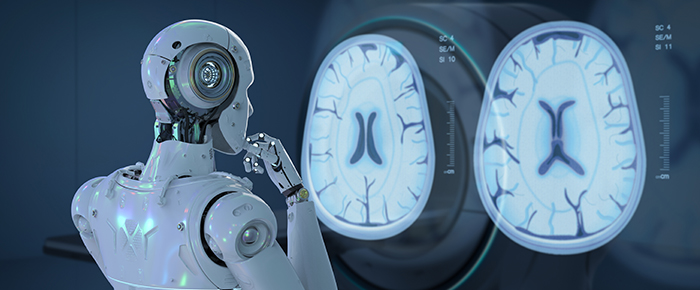
AI Unlocks New Frontiers in Medical DiagnosticsAI Unlocks New Frontiers in Medical Diagnostics Artificial intelligence (AI) is rapidly transforming various industries, including healthcare. In the field of medical diagnostics, AI is unlocking new frontiers, enabling more precise, efficient, and cost-effective diagnosis of diseases. Enhanced Pattern Recognition AI algorithms excel at recognizing complex patterns in vast datasets. These algorithms can analyze medical images, such as X-rays, CT scans, and MRIs, with greater accuracy and speed than humans. By identifying subtle abnormalities that may escape human eyes, AI can assist in early detection and diagnosis of diseases like cancer, heart disease, and neurodegenerative disorders. Automated Image Analysis Traditionally, image analysis in medical diagnostics has been a time-consuming and labor-intensive process. AI-driven systems can automate this process, rapidly extracting and interpreting relevant information from medical images. This reduces diagnostic errors, improves workflow, and frees up healthcare professionals for more complex tasks. Predictive Analytics AI can leverage large patient datasets to identify risk factors and predict the likelihood of developing certain diseases. These predictive models can aid in preventive healthcare, early detection, and personalized treatment plans. For instance, AI algorithms can assess genetic and lifestyle data to estimate an individual’s risk of cardiovascular disease, enabling proactive interventions. Personalized Medicine AI facilitates personalized medicine by tailoring diagnostic tests to individual patients. By considering factors such as age, medical history, and genetic makeup, AI can provide more precise diagnoses and determine the most appropriate treatment options. This approach optimizes patient outcomes and reduces the risk of misdiagnosis or ineffective therapies. Remote Diagnostics AI-powered diagnostic tools enable remote monitoring and diagnostics. By analyzing patient data collected from wearable devices and sensors, AI algorithms can detect early signs of illness or health risks. This remote diagnostics capability expands access to healthcare in underserved areas and allows for timely intervention to prevent complications. Improved Efficiency and Cost-Effectiveness AI streamlines diagnostic processes, reducing the time and effort required for analysis. This improves efficiency in healthcare settings, freeing up valuable healthcare resources for other tasks. Additionally, AI-assisted diagnostics can reduce the need for unnecessary tests, minimizing costs and patient discomfort. Conclusion AI is revolutionizing medical diagnostics by empowering healthcare professionals with enhanced pattern recognition, automated image analysis, predictive analytics, personalized medicine, and remote diagnostics. These advancements lead to more precise diagnoses, improved patient outcomes, and increased efficiency and cost-effectiveness in healthcare delivery. As AI continues to evolve, it holds limitless potential for further transforming the landscape of medical diagnostics and improving the health and well-being of individuals worldwide.
Posted inNews